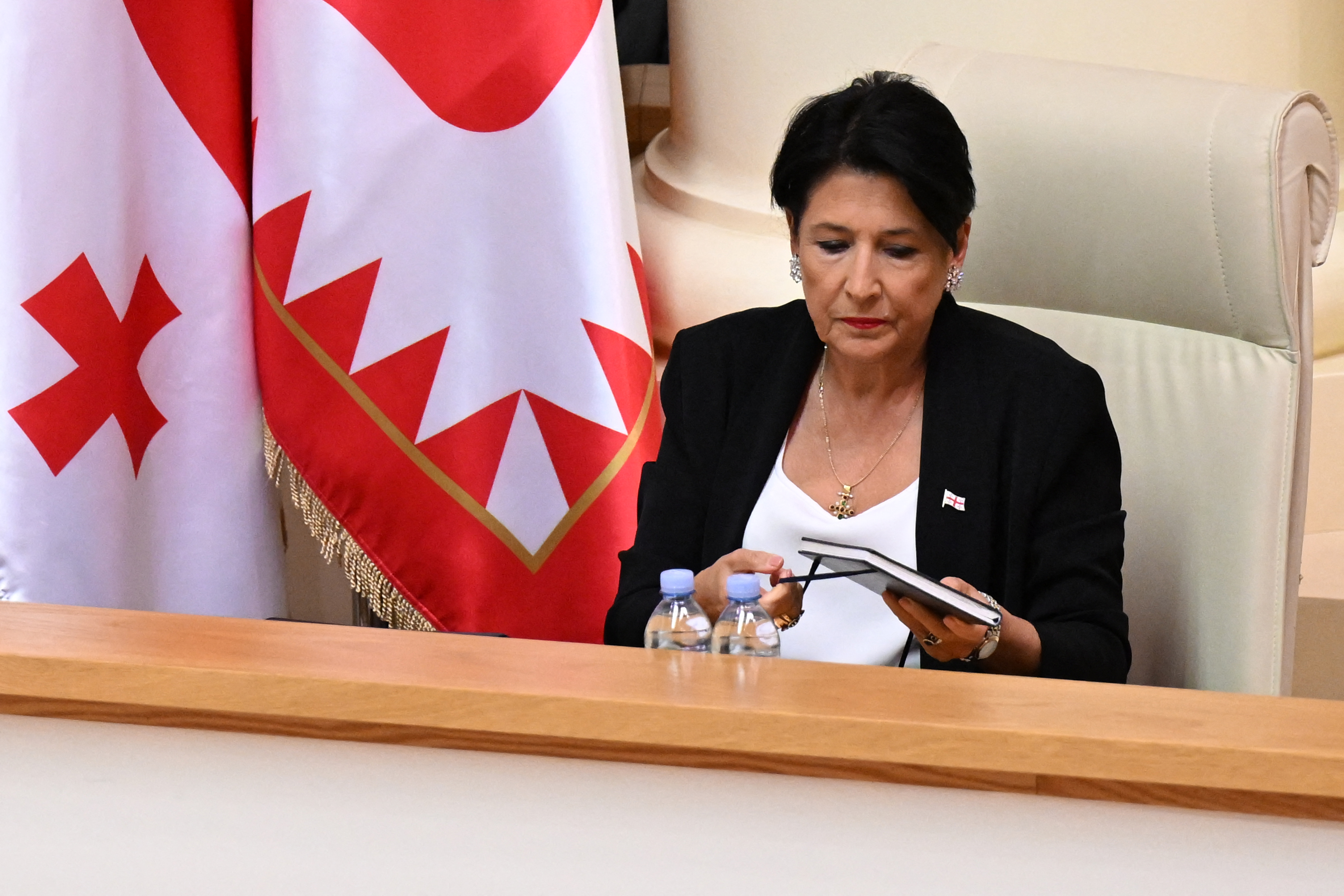Georgia’s parliament recently enacted a wide-ranging anti-LGBTQ+ law, drawing parallels to similar laws in Russia.
Passed by Parliament Speaker Shalva Papuashvili, the law has sparked backlash from human rights advocates and heightens tensions in the country as elections loom.
This legislation imposes bans on same-sex marriage, adoption by same-sex couples, and restricts public representation of LGBTQ+ individuals in the media.
Transgender individuals facing gender dysphoria will be denied access to gender-affirming care and won’t be able to change gender markers on official documents.
Despite opposition from Georgian President Salome Zourabichvili, who opted not to endorse the bill, the ruling Georgian Dream party succeeded in pushing it through, labeling it as a preservation of national values in the lead-up to the parliamentary elections.
The parliament overrode her veto, with Papuashvili arguing that the decision reflects “common sense, historical experience, and centuries-old Christian, Georgian, and European values.”

AP Photo/Shakh Aivazov, File
Opponents have criticized the bill, perceiving it as an effort to marginalize an already vulnerable segment of society.
Notably, the bill equates homosexual relationships with incest, and media featuring “nontraditional” relationships will only be available to adults over 18.
Tbilisi Pride’s director, Tamara Jakeli, indicated this law might force their organization to shut down.
Ana Tavadze, an activist within the group, accused the government of leveraging “political and institutional homophobia” to divert attention from critical issues like unemployment and healthcare.
She believes this law is part of a broader strategy by the ruling party to “fabricate” social conflicts that distract voters from their governance failures.

VANO SHLAMOV/AFP via Getty Images
The legislation has drawn immediate comparisons to Russia, which has enacted numerous laws curtailing LGBTQ+ rights over the past decade.
In Russia, the government has banned the public promotion of “nontraditional sexual relationships” and branded LGBTQ+ activism as extremist.
The Kremlin often promotes traditional family values as part of its domestic agenda.
Georgia, influenced significantly by the Orthodox Church, has wrestled with LGBTQ+ rights for some time, facing violent protests against LGBTQ+ events. In 2021, anti-LGBTQ+ demonstrators disrupted a Pride festival in Tbilisi, forcing its cancellation. This year, tens of thousands marched against LGBTQ+ rights, promoting “traditional family values.”
Papuashvili remarked that by refusing to sign the bill, the President and opposition lacked the courage to express their true stance on the matter.

AP Photo/Sophiko Megrelidze
As broader political concerns surface, the country applied for EU membership in 2022 following Russia’s invasion of Ukraine, but its aspirations are being questioned due to actions like this law that echo Russian legislation aimed at stifling dissent.
Concerns about anti-LGBTQ+ violence intensified after the murder of transgender actor Kesaria Avramidze on September 18—the day after the bill’s passage.
Advocacy groups fear that the new law may incite further violence.
As Georgia gears up for its October 26 parliamentary election, both the ruling party and opposition are attempting to navigate the delicate balance between voter demands for traditional values and their aspirations for EU membership.
Though President Zourabichvili remains critical of the ruling party, her ability to block controversial legislation is limited by Georgian Dream’s parliamentary dominance.
This article includes reporting from The Associated Press
